What is the difference between antigen and antibody l definition of antigen and antibody with examples l antigen vs antibody l how does antigens differ from antibody l how do you compare antigen from antibody l how do you distinguish antigen from antibody
As you know that Immunity is the ability of an organism to recognise the foreign material that enter the body and to mobilise the cells and cells products to speedily remove that foreign material, the foreign materials are antigens and the cell destroy the foreign materials are antibody which is Y in shape, produced by B-cell.
How do you compare between antigen and antibody?, you can compare between antigen and antibody in following points- 1) Antigen is a substance that can induce the immune system to produce antibody against it while antibody is protective protein produced by B cell of the immune system, 2) Antigen acts as a key while antibody act as a lock, and 3) Antigen could be anything like a pathogen or bacteria or fungi or even virus while Paratype of antibody binds with the epitope of antigen in a lock and key molecule.
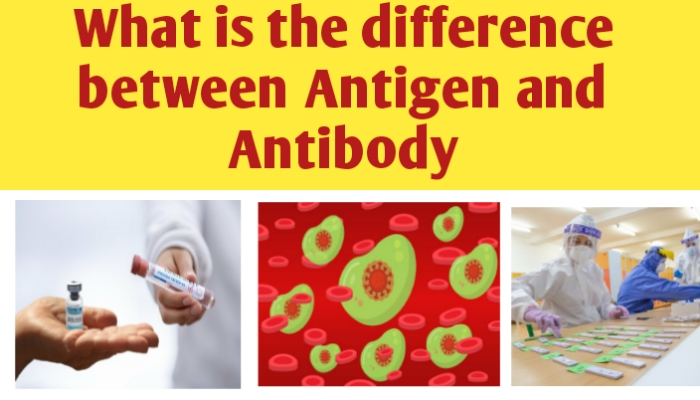
What is the difference between antigen and antibody
Hi guys in this article we know about definition of antigen and antibody with examples and compare/ differences/ distinguish between antigen and antibody /antigen vs antibody/ and comparison between antigen and antibody
How do you distinguish antigen from antibody?, you can distinguish antigen from antibody are in following points- 1) Antigen is foreign pathogens that trigger antibody formation while antibody is a molecule synthesized by an animal to combat foreign material, 2) Antigen is a protein or polysaccharide molecule while antibody is protein only, and 3) Antigen binds to a macrophage to reach a helper t-cell to initiate immune response while antibody directly joins an antigen to destroy it.
How does antigens differ from antibody?, antigens differ from antibody in following points – 1) An antigen is any substance that triggers an immune response in the body while an antibody is a blood protein that is produced against a specific antigen, 2) Antigens are also called immunogens while antibody are also called immunoglobulins, and 3) Antigen is a protein or polysaccharide molecule while antibody is a protein molecules.
Definition and examples of Antigen
Definition of antigens:– Antigens are define as those molecules capable of triggering an immune response and it has distinct surface features or epitype resulting in specific response. Example of antigen, viruses, bacteria and pathogens.
Difinition and examples of antibody
Definition of antibody :- An Antibody is define those molecules representing as an immunoglobulin is a large ,Y shaped protein used by the immune system to identify and neutralize antigens like bacteria, viruses and pathogens. Examples of antibodies are IgA, IgD, IgM etc.
What is the difference between antigen and antibody
This question is very important for class 8th, 9th, 10th, 11th and 12th students who are preparing for competitive and annual board examination.
Regarding this “what is difference between the antigen and antibody?, the main difference between antigen and antibody are :- 1) Antigen is a substance that can induce the immune system to produce antibody against it while Antibody is a protective protein produced by the B cell of the immune system in order to attack antigens, 2) Antigens are made of polysaccharide while antibody are made purely made of protein, and 3) Antigens are called immunogens while antibody are called immunoglobulin.
You can also click on the given link to see others topic in our website and YouTube channels
● Purines and Pyrimidine compare
List the 5 main differences between antigen and antibody/ comparison between antigen and antibody/ distinguish/ antigen vs antibody/ differentiate between antigens and antibody are as follows:-
1. An antigen is any substance that triggers an immune response in the body while an antibody is a blood protein that is produced against a specific antigen.
2. Antigens are also called immunogens while antibody are also called immunoglobulins.
3. Antigen is a protein or polysaccharide molecule while antibody is a protein molecules.
4. Antigen may occur on the surface of a microbe or as a free molecule while an antibody occurs on the surface of a plasma cell and also in body fluids.
5. Antigen binds to a macrophage to reach a helper T- cell to initiate immune response while an antibody directly joins an antigen to destroy the latter.
Important features and characteristics of antigens and antibody
Antigen:-
1. An antigen is any substance that triggers an immune response in the body.
2. Antigens are also called immunogens.
3. Antigen is a protein or polysaccharide molecule.
4. Antigen may occur on the surface of a microbe or as a free molecule.
5. Antigen binds to a macrophage to reach a helper T- cell to initiate immune response.
6. Interactive domain with the antibody is called the epitope.
7. Antigens cause either diseases or allergic reaction.
8. The four types of antigens are exogenous antigens, endogenous antigens, autoantigens, and neoantigens.
9. Antigen is usually a foreign material that elicits antibody formation.
10. Antigens could be anything like a pathogen or bacteria or fungi or even virus.
Antibody:-
1. An antibody is a blood protein that is produced against a specific antigen.
2. Antibody are also called immunoglobulins.
3. Antibody is a protein molecules.
4. Antibody occurs on the surface of a plasma cell and also in body fluids.
5. Antibody directly joins an antigen to destroy the latter.
6. Variable site can bind to the epitope.
7. Antibody protect the body from antigens either by immobilizing the antigen or lysing the pathogens.
8. Antibody is having four types IgM, IgG ,IgD , and IgA
9. Antibody is a molecule synthesized by an animal to combat foreign material.
10. Paratype of antibody binds with the epitope of antigen in a lock and key mechanism.
Conclusions :-
The antibody acts against antigens which destroys it and disease doesn’t occur, this is the basis of Immunity in the body


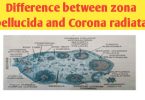
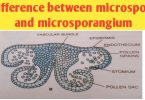
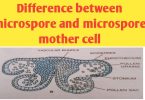

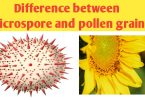
Leave a Comment